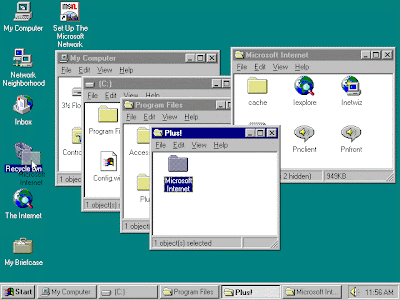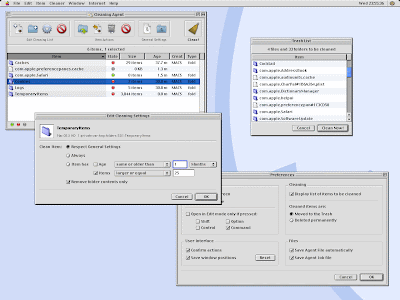Who do you call a Psycho?
1. "I am not a parent, and I have other issues to think about."
2. "I have children close to me, or mine, and I do my bit to take care of them. Others should take care of their own"
3. "Children should be reared in a strict disciplined atmosphere and taught to distinguish clearly between right and wrong. And I know about what is right and wrong".
4. Middle-aged men who have children and pretend they are dead?
5. Someone, anyone, insider, outsider, foreigner who know all about goodness and the "dodgy", the family and national values, and just want to walk on?
6. Or some small shopkeeper or businessman who screams at the ugly little rag-picker animal stealing his cellphone, and then takes lead to tie that 11-year old vermin to a lamp post as is the practices with thieves and start to hit him until he starts to bleed?
Check it out:

http://www.telegraphindia.com/1090703/jsp/calcutta/story_11188948.jsp
If you said yes to just no. 6, and not chosen all the above, you could be wholly, or at least partly wrong there.
Maybe we all need to be ashamed, no outraged. Are the authorities there at all: will they the state make a case against Sanjoy Biswas, the small businessman, probably a parent too? It's not such a surprising bit of news anyway. I wrote a similar story, a short story at the age of sixteen about two cycle thieves caught in a fairground and lynched by the mob. That was set in rural Bengal, in the romantic countryside of "ranga mati" (red earth).
Sometimes I like to call our country a fascist democracy. Yes, you got that right: it is a bit of a contradiction in terms, isn't it? How can that be? Fascism needs some kind of regimentation, and the mob is not regimented. Well, the mind can be.
Even mob violence has character, it's not plain anarchy. A pattern. A bloody indelible mark of the stench of confused values.
 So how did this come about? Let's start with the children and their education, and the supposed agent provocateur of the current system: Lord Macaulay. This brilliant methodical mind noted in Minute on Indian Education, 1835:
So how did this come about? Let's start with the children and their education, and the supposed agent provocateur of the current system: Lord Macaulay. This brilliant methodical mind noted in Minute on Indian Education, 1835:
"It is impossible for us, with our limited means, to attempt to educate the body of the people. We must at present do our best to form a class who may be interpreters between us and the millions whom we govern; a class of persons, Indian in blood and colour, but English in taste, in opinions, in morals, and in intellect. To that class we may leave it to refine the vernacular dialects of the country, to enrich those dialects with terms of science borrowed from the Western nomenclature, and to render them by degrees fit vehicles for conveying knowledge to the great mass of the population."If you look up sources in the internet, you might come across a rather creative interpretation which has the first Baron stating:
I have travelled across the length and breadth of India and I have not seen one person who is a beggar, who is a thief. Such wealth I have seen in this country, such high moral values, people of such calibre, that I do not think we would ever conquer this country, unless we break the very backbone of this nation, which is her spiritual and cultural heritage, and, therefore, I propose that we replace her old and ancient education system, her culture, for if the Indians think that all that is foreign and English is good and greater than their own, they will lose their self-esteem, their native culture and they will become what we want them, a truly dominated nation.
It is interesting what some rightists in India think of Macaulay: tampering of historical evidence is commonplace, especially with extreme leftists and rightists.
The issue here is of course western education as we know it in India. It was introduced at various levels as a model of modernisation without taking into consideration the unique local factors (a lot of which is often put on the pedestal of the glorious past, never mind if that past consisted of feudal communalism practiced at almost every Princely state or Sultanate). The west tried to look at India as a nation, or a race, or at least an empire. While progressive democratic thinking was being infused right into British imperial culture after the democratic movements in France and United States, in the colonies, the role of the enlightened modernists in the establishment became that of laying down the basis of the new world order to arise and establish itself for the next century and perhaps beyond. The trouble with enlightened modernists in the establishment is they have a plan, but they sometimes lack in detail, and execution.
It followed that a brutal old punitive system of education was enforced on all classes of people in place of the privileged education based on caste alignments or nobility which either followed a traditional Hindu model or that of the Islamic rulers. Centuries old ingrained misconceptions and prejudices do not get replaced by a new model of education easily enough. What ensued was subversion at many levels by Indians and foreigners, tainted by revisions using confused concepts from orientalist, religious revivalist and finally, nationalistic thinking. New India came of age with independence in 1947 in a culture of bureaucracy rather than an enlightened nationalist movement, if there can be one. By the time India became free, it was already clear what nationalism could be: Hitler had shot himself in a bunker and the world was beginning to hear about the death chambers and mass crematoria in East Europe.
The mob, the people, the masses, whatever you will, are an intelligent people with one big weakness: value system. It's like the fatal weakness of a heroic figure. Whatever the form of government, there can be no peace, no progress without facing up to the fact what the ground reality of living standards and human rights is like.
A nation that allows itself to accept the systematic violence of an unimaginable degree on children, and then to adults who are weaker (usually women), or just born poorer, and promotes dynastic rule in the framework of a democracy, a nation that continues under leaders who perpetrate mass murders and riots, or those that will subvert or block every positive initiative to play to traditional or populist ideas (which is which?) in order to practice the "realpolitik" of a modern state, is a nation fast going into decline.
Take the Minister of Human Resources, Kapil Sibal's recent initiative to do away with examinations at the grade 10 level (for sixteen year olds). Both the left and right has come up quite vehemently in criticism of such a preposterous proposition. There has been no decline in student suicide rates as far as I can see although I do not have any statistical data to prove it right away. Are there any researchers, any bodies, any lone academic keeping track of student suicides rates and rates of beatings, canings and other punitive strategies that our current education system use to discipline the would-be masses? I think I may be out of line in this argument because many authoritative figures will immediately point out that for one, I do not have self-confessedly the statistics right, but more importantly, the examination system does not necessarily lead to suicides in a simple causal relationship.
Suicides, in the end, no pun intended, mean more dead people, whatever age they died. The living has to continue with the torture and the handicap of trauma that affects millions and millions of people. Very few, after all, commit suicide, in the country that's going to be the world's most populous country of enfranchised citizens. A country which has a long "civilisation" as opposed to "tribal" culture. That reminds me of the fictional Indian Chief of Lou Reed's song "Last Great American Whale", especially the last sentence of the two verses excerpted below:
That's another continent, another extinct old culture.
I have just one last thing to say about the topic of examination-based education system: failures in examinations are stigma. When you fail to be promoted from one class to another, as a eight, ten, or even fourteen year old, you are branded, which translates to a psychological badge of "low self-esteem" for the failed child. Even the fear of failure is enough to cause trauma. Even though you had no chances of failing, ask yourself honestly: didn't you get that sick feeling at one point or the other in your childhood about how it would feel like to fail in a subject, a mid-term examination, or the annual one that promotes you up with your peers to the next classroom?
The roots of unreason lie in our education system, never mind who enforced it on us, it's a system that has failed. We need to learn from that failure: we need to stop the violence against children, may be they are dead for us, may be they are someone else's, may be they belong to some other caste or tribe.
As a die-hard optimist (it is a little difficult to identify oneself as a "logical positivist" in these extreme, trying times), I hope the Minister gets to implement his agenda, whatever the politics. In absence of another framework of education, this will be very challenging. I sure hope he has a blueprint, and I sure hope that blueprint has the necessary elements of the "holistic" education system he has hinted at aimed at creating a less violent and psychotic pan-Indian or South Asian culture.
1. "I am not a parent, and I have other issues to think about."
2. "I have children close to me, or mine, and I do my bit to take care of them. Others should take care of their own"
3. "Children should be reared in a strict disciplined atmosphere and taught to distinguish clearly between right and wrong. And I know about what is right and wrong".
4. Middle-aged men who have children and pretend they are dead?
5. Someone, anyone, insider, outsider, foreigner who know all about goodness and the "dodgy", the family and national values, and just want to walk on?
6. Or some small shopkeeper or businessman who screams at the ugly little rag-picker animal stealing his cellphone, and then takes lead to tie that 11-year old vermin to a lamp post as is the practices with thieves and start to hit him until he starts to bleed?
Check it out:


http://www.telegraphindia.com/1090703/jsp/calcutta/story_11188948.jsp
If you said yes to just no. 6, and not chosen all the above, you could be wholly, or at least partly wrong there.
Maybe we all need to be ashamed, no outraged. Are the authorities there at all: will they the state make a case against Sanjoy Biswas, the small businessman, probably a parent too? It's not such a surprising bit of news anyway. I wrote a similar story, a short story at the age of sixteen about two cycle thieves caught in a fairground and lynched by the mob. That was set in rural Bengal, in the romantic countryside of "ranga mati" (red earth).
Sometimes I like to call our country a fascist democracy. Yes, you got that right: it is a bit of a contradiction in terms, isn't it? How can that be? Fascism needs some kind of regimentation, and the mob is not regimented. Well, the mind can be.
Even mob violence has character, it's not plain anarchy. A pattern. A bloody indelible mark of the stench of confused values.
 So how did this come about? Let's start with the children and their education, and the supposed agent provocateur of the current system: Lord Macaulay. This brilliant methodical mind noted in Minute on Indian Education, 1835:
So how did this come about? Let's start with the children and their education, and the supposed agent provocateur of the current system: Lord Macaulay. This brilliant methodical mind noted in Minute on Indian Education, 1835:"It is impossible for us, with our limited means, to attempt to educate the body of the people. We must at present do our best to form a class who may be interpreters between us and the millions whom we govern; a class of persons, Indian in blood and colour, but English in taste, in opinions, in morals, and in intellect. To that class we may leave it to refine the vernacular dialects of the country, to enrich those dialects with terms of science borrowed from the Western nomenclature, and to render them by degrees fit vehicles for conveying knowledge to the great mass of the population."If you look up sources in the internet, you might come across a rather creative interpretation which has the first Baron stating:
I have travelled across the length and breadth of India and I have not seen one person who is a beggar, who is a thief. Such wealth I have seen in this country, such high moral values, people of such calibre, that I do not think we would ever conquer this country, unless we break the very backbone of this nation, which is her spiritual and cultural heritage, and, therefore, I propose that we replace her old and ancient education system, her culture, for if the Indians think that all that is foreign and English is good and greater than their own, they will lose their self-esteem, their native culture and they will become what we want them, a truly dominated nation.
It is interesting what some rightists in India think of Macaulay: tampering of historical evidence is commonplace, especially with extreme leftists and rightists.
The issue here is of course western education as we know it in India. It was introduced at various levels as a model of modernisation without taking into consideration the unique local factors (a lot of which is often put on the pedestal of the glorious past, never mind if that past consisted of feudal communalism practiced at almost every Princely state or Sultanate). The west tried to look at India as a nation, or a race, or at least an empire. While progressive democratic thinking was being infused right into British imperial culture after the democratic movements in France and United States, in the colonies, the role of the enlightened modernists in the establishment became that of laying down the basis of the new world order to arise and establish itself for the next century and perhaps beyond. The trouble with enlightened modernists in the establishment is they have a plan, but they sometimes lack in detail, and execution.
It followed that a brutal old punitive system of education was enforced on all classes of people in place of the privileged education based on caste alignments or nobility which either followed a traditional Hindu model or that of the Islamic rulers. Centuries old ingrained misconceptions and prejudices do not get replaced by a new model of education easily enough. What ensued was subversion at many levels by Indians and foreigners, tainted by revisions using confused concepts from orientalist, religious revivalist and finally, nationalistic thinking. New India came of age with independence in 1947 in a culture of bureaucracy rather than an enlightened nationalist movement, if there can be one. By the time India became free, it was already clear what nationalism could be: Hitler had shot himself in a bunker and the world was beginning to hear about the death chambers and mass crematoria in East Europe.
The mob, the people, the masses, whatever you will, are an intelligent people with one big weakness: value system. It's like the fatal weakness of a heroic figure. Whatever the form of government, there can be no peace, no progress without facing up to the fact what the ground reality of living standards and human rights is like.
A nation that allows itself to accept the systematic violence of an unimaginable degree on children, and then to adults who are weaker (usually women), or just born poorer, and promotes dynastic rule in the framework of a democracy, a nation that continues under leaders who perpetrate mass murders and riots, or those that will subvert or block every positive initiative to play to traditional or populist ideas (which is which?) in order to practice the "realpolitik" of a modern state, is a nation fast going into decline.
Take the Minister of Human Resources, Kapil Sibal's recent initiative to do away with examinations at the grade 10 level (for sixteen year olds). Both the left and right has come up quite vehemently in criticism of such a preposterous proposition. There has been no decline in student suicide rates as far as I can see although I do not have any statistical data to prove it right away. Are there any researchers, any bodies, any lone academic keeping track of student suicides rates and rates of beatings, canings and other punitive strategies that our current education system use to discipline the would-be masses? I think I may be out of line in this argument because many authoritative figures will immediately point out that for one, I do not have self-confessedly the statistics right, but more importantly, the examination system does not necessarily lead to suicides in a simple causal relationship.
Suicides, in the end, no pun intended, mean more dead people, whatever age they died. The living has to continue with the torture and the handicap of trauma that affects millions and millions of people. Very few, after all, commit suicide, in the country that's going to be the world's most populous country of enfranchised citizens. A country which has a long "civilisation" as opposed to "tribal" culture. That reminds me of the fictional Indian Chief of Lou Reed's song "Last Great American Whale", especially the last sentence of the two verses excerpted below:
Off the Carolinas the sun shines brightly in the day
The lighthouse glows ghostly there at night
The chief of a local tribe had killed a racist mayors son
And he'd been on death row since 1958
The mayors kid was a rowdy pig
Spit on Indians and lots worse
The old chief buried a hatchet in his head
Life compared to death for him seemed worse
The lighthouse glows ghostly there at night
The chief of a local tribe had killed a racist mayors son
And he'd been on death row since 1958
The mayors kid was a rowdy pig
Spit on Indians and lots worse
The old chief buried a hatchet in his head
Life compared to death for him seemed worse
That's another continent, another extinct old culture.
I have just one last thing to say about the topic of examination-based education system: failures in examinations are stigma. When you fail to be promoted from one class to another, as a eight, ten, or even fourteen year old, you are branded, which translates to a psychological badge of "low self-esteem" for the failed child. Even the fear of failure is enough to cause trauma. Even though you had no chances of failing, ask yourself honestly: didn't you get that sick feeling at one point or the other in your childhood about how it would feel like to fail in a subject, a mid-term examination, or the annual one that promotes you up with your peers to the next classroom?
The roots of unreason lie in our education system, never mind who enforced it on us, it's a system that has failed. We need to learn from that failure: we need to stop the violence against children, may be they are dead for us, may be they are someone else's, may be they belong to some other caste or tribe.
As a die-hard optimist (it is a little difficult to identify oneself as a "logical positivist" in these extreme, trying times), I hope the Minister gets to implement his agenda, whatever the politics. In absence of another framework of education, this will be very challenging. I sure hope he has a blueprint, and I sure hope that blueprint has the necessary elements of the "holistic" education system he has hinted at aimed at creating a less violent and psychotic pan-Indian or South Asian culture.















![9/11: a Digital Painting by Shubhojoy Mitra [visit www.cyberartgallery.org]](https://blogger.googleusercontent.com/img/b/R29vZ2xl/AVvXsEjx3eEMPgbbedezTxm26DLjbXif8eUjHilc9tQc33YwzjXh9uMeKhikmIaUPv45FPEViN7feptbOn6fEgFK-uWefPRdSl7oIWlxVgGE4lLsgJq1qnLFz5e88rRXkRHaKmG4KRz6JoJesrBS/w400-h322/9.11.jpg)


